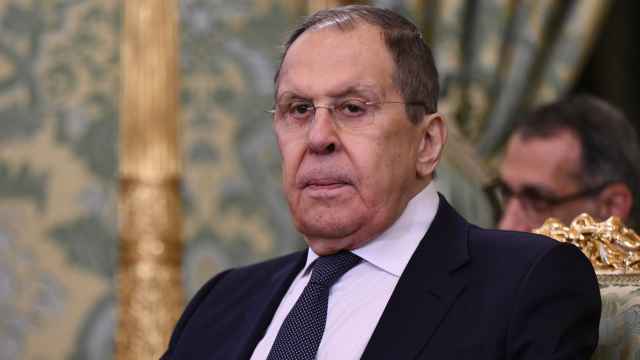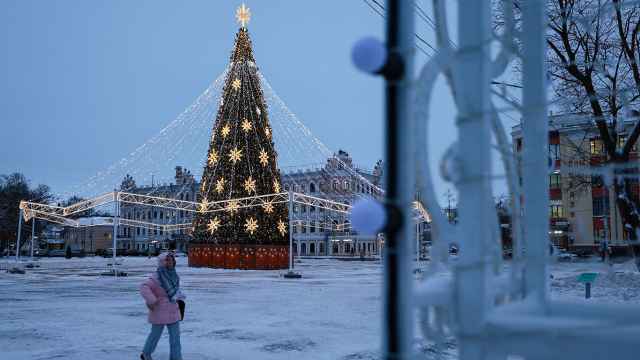The country's top companies, including oil producer LUKoil and Russia's fourth-largest oil company Gazprom Neft, are raising new syndicated loans to take advantage of falling loan pricing, bankers said.
Russia's second-biggest oil producer, LUKoil, is talking to banks about a potential new loan of up to $1.5 billion, and Gazprom Neft is raising a second $1 billion loan after tapping the market in April.
Lending to Russia is rebounding after falling during the eurozone crisis, when rising bank funding costs made dollar lending difficult for international banks, and many pulled out of the country's dollar-based loan market.
Russian loan volume was 149 percent higher in the first nine months of the year at $38 billion, compared to $15.3 billion in the same period of 2012, Thomson Reuters LPC data revealed.
The flow of new loans is expected to push volume higher by year end, but returns for banks are tumbling as pricing falls.
Russia's loan market is relatively busy, but it is driven by repeat club loans from a small number of large companies looking to lock in low loan pricing.
"We will see a handful of big Russian blue chips coming to the market for cheap money," said one London-based banker.
LUKoil has asked banks for indications on the pricing and tenor of a potential loan and could raise up to $1.5 billion if terms are sufficiently favorable.
The company is expected to be able to achieve highly competitive pricing, which could come inside the anticipated margin of 150 basis points for Gazprom Neft's upcoming $1 billion, five-year loan.
"LUKoil is a very desirable loan asset for banks, one would expect razor-thin pricing. But if the price is not right, there will be no deal," a second banker said.
Like many large Russian loans, LUKoil and Gazprom Neft's loans are expected to be sold on a club basis to a small group of relationship banks rather than fully syndicated to a wide range of participant banks.
Although banks' appetite for Russian risk is improving, the universe of banks willing to lend to the country is still smaller than before the eurozone crisis.
"Ten years ago there was real syndication in the Russian loan market. A small number of banks were selling down to a variety of investors including Middle Eastern, Spanish and Italian banks," said the first London-based banker.
"Where you used to see 250 banks in the Russian market, now there are only about 30."
Repricing
Several other Russian companies are also seeking to reprice existing loans that were agreed in the last 12 months.
Fertilizer company Uralchem is talking to lenders about repricing a $220 million, five-year pre-export financing deal that was agreed in January and priced at about 400 basis points.
Oil firm Bashneft is also negotiating a repricing of a $600 million, pre-export financing facility from May, and oil giant Rosneft is considering repricing $4.6 billion of term loans.
Lenders believe that Russian loan pricing will continue to fall as it has not yet reached historic lows.
"Sadly, banks will continue to support low pricing," said the first London-based banker. "In fact, both Gazprom Neft and LUKoil have seen much lower pricing on previous deals than the current benchmark in Russia."
Gazprom Neft signed a $630 million loan in September 2006 that paid 60 basis points, while LUKoil paid margins of 85 to 95 basis points on an unsecured loan signed in April 2008.
Bank Borrowing
Most recent Russian loan activity has been focused on the country's corporate sector, but financial institutions are also reducing borrowing costs on their loans.
Gazprombank signed a $500 million, three-year club loan with a group of 15 international banks, which pays a margin of 140 basis points with fees, giving all-in pricing of 175 basis points. The deal replaces an existing one-year loan that was arranged in October and was priced at 200 basis points.
Privately-owned Promsvyazbank also signed an oversubscribed one-year $300 million, trade-related term loan that paid 175 basis points and refinanced a $400 million, one-year facility signed last October that was priced at 190 basis points.
A Message from The Moscow Times:
Dear readers,
We are facing unprecedented challenges. Russia's Prosecutor General's Office has designated The Moscow Times as an "undesirable" organization, criminalizing our work and putting our staff at risk of prosecution. This follows our earlier unjust labeling as a "foreign agent."
These actions are direct attempts to silence independent journalism in Russia. The authorities claim our work "discredits the decisions of the Russian leadership." We see things differently: we strive to provide accurate, unbiased reporting on Russia.
We, the journalists of The Moscow Times, refuse to be silenced. But to continue our work, we need your help.
Your support, no matter how small, makes a world of difference. If you can, please support us monthly starting from just $2. It's quick to set up, and every contribution makes a significant impact.
By supporting The Moscow Times, you're defending open, independent journalism in the face of repression. Thank you for standing with us.
Remind me later.





